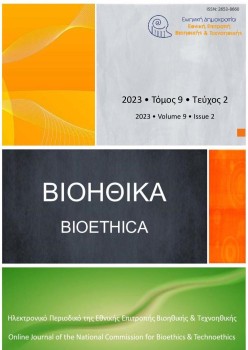The ethics and legality of studying games with depressed participants
Résumé
This article examines gaming as a treatment for depression, focusing on the Finnish game Meliora and its research. Developed by Aalto University, Meliora aims to improve mental health of de-pressed individuals in conjunction with drugs for depression and therapy. Gaming as treatment is an innovation, and therefore, it is essential to research the legal and ethical dimensions that arise in these studies.
The aim of the article is to indicate some specific issues that arise when conducting research on de-pressed people. It begins by presenting the relationship between gaming and mental health, discussing both the negative and positive effects of gaming in Chapter 2. Chapter 3 introduces Meliora and other innovations in the same industry along with a description of the research project. In Chapter 4, the focus is on bioethical and legal issues relating to research on depressed participants. The issues are discussed in light of the four biomedical principles: respect for autonomy, nonmaleficence, beneficence and justice. The chapter highlights concerns related to harm and risks, giving informed consent as a depressed or addicted individual, and the justification of excluding certain groups from the research. Finally, Chapter 5 provides a summary of the findings.
Article Details
- Comment citer
-
Hukkanen, S. (2023). The ethics and legality of studying games with depressed participants. Bioethica, 9(2), 11–25. https://doi.org/10.12681/bioeth.35572
- Rubrique
- Original Articles

Ce travail est disponible sous la licence Creative Commons Attribution 4.0 International .
Authors who publish with this journal agree to the following terms:
- Authors retain copyright and grant the journal right of first publication with the work simultaneously licensed under a Creative Commons Attribution CC BY 4.0 License, which allows for immediate free access to the work and permits any user to read, download, copy, distribute, print, search, or link to the full texts of articles, crawl them for indexing, pass them as data to software, or use them for any other lawful purpose. Appropriate credit must be given by citing the author(s) and the original publication in this journal.
- Authors are able to enter into separate, additional contractual arrangements for the non-exclusive distribution of the journal's published version of the work (e.g. post it to an institutional repository or publish it in a book), with an acknowledgement of its initial publication in this journal.
We encourage authors to deposit their articles, as well as data underlying the publications, in institutional and/or other appropriate subject repositories.
Bioethica permits and encourages authors to archive the final publication pdf in institutional (e.g. the repository of the National Hellenic Research Foundation) or other appropriate subject repositories (e.g. SSOAR repository for social sciences), in compliance with institutional and/or funder open access policies, after publication in the BIOETHICA. Authors must provide bibliographic details that credit publication in the journal, as well as related funding details (when applicable).
Lists of institutional and other subject-based academic open access repositories can be found listed by country at the registry http://opendoar.org/countrylist.php
If your institution does not possess a repository you may deposit a copy of your paper at no cost with www.zenodo.org , the repository supported for open access research in the EU by the European Commission, through the project OpenAIRE (www.openaire.eu )



